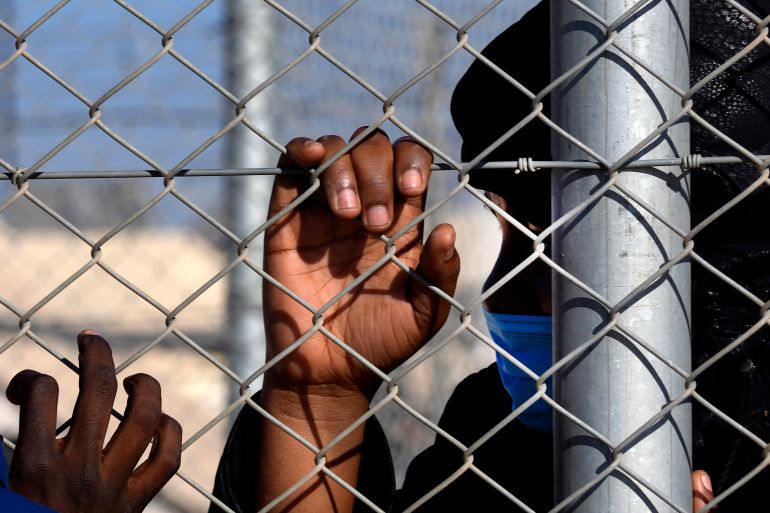Cyprus concerned over spike in arrivals of Syrian refugees from Lebanon
Arrivals of Syrian asylum seekers have surged, with more than 350 such arrivals recorded in two days.

Cyprus has expressed concerns about a rise in the irregular migration of Syrian refugees coming from Lebanon.
Cypriot President Nikos Christodoulides on Tuesday said it was “deeply concerning” that the irregular arrival of Syrian asylum seekers and refugees was consistently rising in recent weeks, with more than 350 such arrivals recorded in two days.
Keep reading
list of 3 itemsSyria avoids regional cold shoulder despite Captagon drug trade
Switzerland to put uncle of Syria’s al-Assad on trial for war crimes
“I fully understand the challenges Lebanon is facing, but exporting migrants to Cyprus should not be the answer and cannot be accepted,” he said after a meeting with European Parliament President Roberta Metsola.
Cyprus, the EU’s easternmost state, lies just 100 miles (160km) from Syria and Lebanon, and arrivals of asylum seekers from the former in particular have surged in recent months.
Lebanon, which is in economic crisis, hosts some 800,000 United Nations-registered Syrian refugees, but officials estimate the actual number is far higher, ranging between 1.5 and two million.
About 90 percent of Syrian refugees in Lebanon live below the extreme poverty line, according to the UN High Commissioner for Refugees (UNHCR).
In proportion to its population, Cyprus has recorded the highest number of applications for asylum over recent years when compared with other EU member states.
An average of 30 people per day have reached the island since the beginning of the year according to statistics compiled by the UNHCR, the UN’s refugee body.
Nicosia wants the European Union to consider declaring parts of war-ravaged Syria safe, which would allow for the repatriation of asylum seekers arriving at neighbouring countries.
Syria has been in a state of war since 2011 after the protests broke out against Syrian President Bashar al-Assad’s government. Al-Assad regained control of two-thirds of the country, with the help of his allies – Russia, Iran and the Lebanese armed group Hezbollah.
The northwest is still under the control of opposition forces.
Last month, EU Commissioner Margaritis Schinas said the European Union could strike a deal with Lebanon to stem the outflow of refugees and aslyum seekers, as Cyprus complained it was being inundated by a surge in arrivals from the Middle East.
The EU has entered agreements with several countries to help them deal with increased migration burdens, and, ultimately, to prevent a spillover into the 27 member states of the bloc. Rights groups have sharply criticised the pacts.